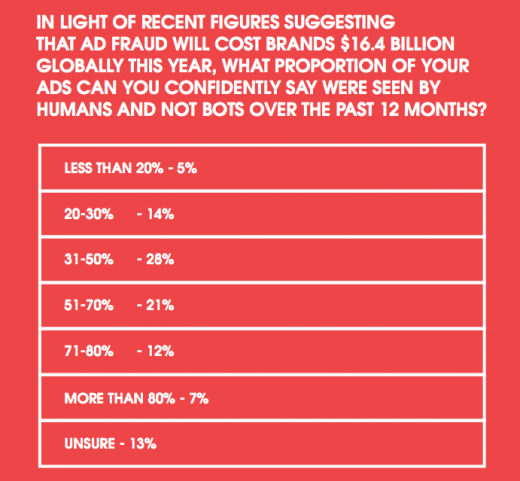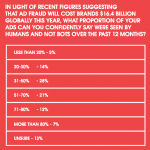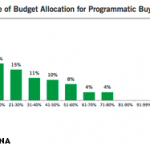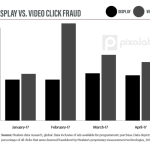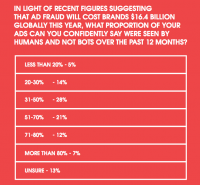Programmatic problems: Fixing a broken market
Contributor Chris Liversidge describes the current crisis of confidence in programmatic advertising and suggests remedies that should be implemented.

The rise of digital advertising has brought unparalleled opportunities to target ads and improve performance. With programmatic campaigns, computers can manage ad placements across thousands of sites to target the right audience, at the right time, right across the web. Or so goes the theory. In practice, programmatic advertising is wide open to abuse.
A 2017 forecast by media buying giant GroupM predicted that digital advertising would account for 77% of all new spending that year, while television would account for just 17%. Yet the rise of digital advertising has also brought with it unprecedented waste and unparalleled opportunities for fraud. The challenge the industry faces is that, in some cases, advertising is not merely ineffective but unseen. Audiences cannot be converted because they are concocted, and spending is not so much wasted as stolen.
High-profile studies have shown that programmatic video ads had 73 more bot “viewers” than average, highlighting a profound weakness in the process. To get a handle on the issue, we at our company recently surveyed 150 heads of marketing for major UK brands (with revenues of more than £100 million) for a report on the current state of programmatic ad fraud.
Asked what proportion of their ads they could confidently say were seen by humans rather than bots over the past 12 months, only four in ten put the figure at more than half. Just 7% said they thought the proportion viewed by humans was 80% or more. The best advert in the world cannot deliver results if nobody sees it.
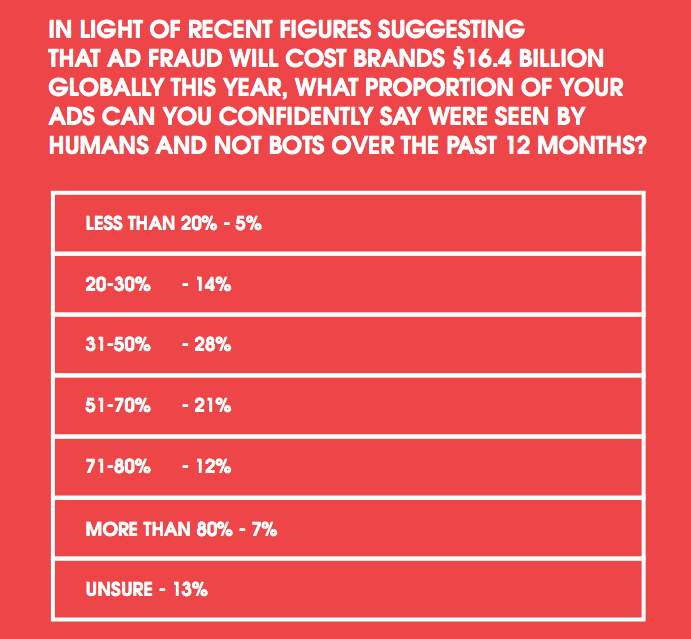
A lack of transparency is rife in today’s digital marketing sector. Many agencies buying the adverts for their clients also own programmatic platforms whose weaknesses and lack of transparency enable fraud to continue. And it would seem advertisers are aware of this. Nine out of ten advertisers we surveyed said that there is a lack of transparency in their programmatic ad campaigns because their ad buying platform is owned by their advertising agency.
For now, though, many advertisers feel tied to programmatic campaigns. With the audiences they want increasingly found online and the big agencies snapping up much of the premium ad space, buyers feel they have little choice but to continue. Some are also tied into contracts. Perhaps that’s why, for now, 70% of UK advertisers are still planning to maintain or even increase their programmatic spend, according to our survey.
It’s clear from our report that industry is facing a crisis of confidence. Yet the technology to address many of these concerns already exists. Google’s DoubleClick Bid Manager is rolling out automatic refunds for views that look suspicious, and some programmatic platforms also offer real insights into performance and protection against fraud. The problem is not technological ability, but the will to deliver.
There are things that advertisers can do to protect themselves though. First, it will make a world of difference if advertisers, where possible, separate their programmatic campaigns so they are given the consideration – and performance measures – their growing size warrants.
Secondly, they should unbundle their agency relationship from the programmatic platform, to enable them to seek out independent providers that offer true transparency and protection from the risks of current programmatic campaigns. In doing so they will not only significantly reduce their exposure to waste and damage to their band reputation from fraud, but also start to see programmatic begin to deliver on its promise.
Opinions expressed in this article are those of the guest author and not necessarily Marketing Land. Staff authors are listed here.
Marketing Land – Internet Marketing News, Strategies & Tips
(45)

